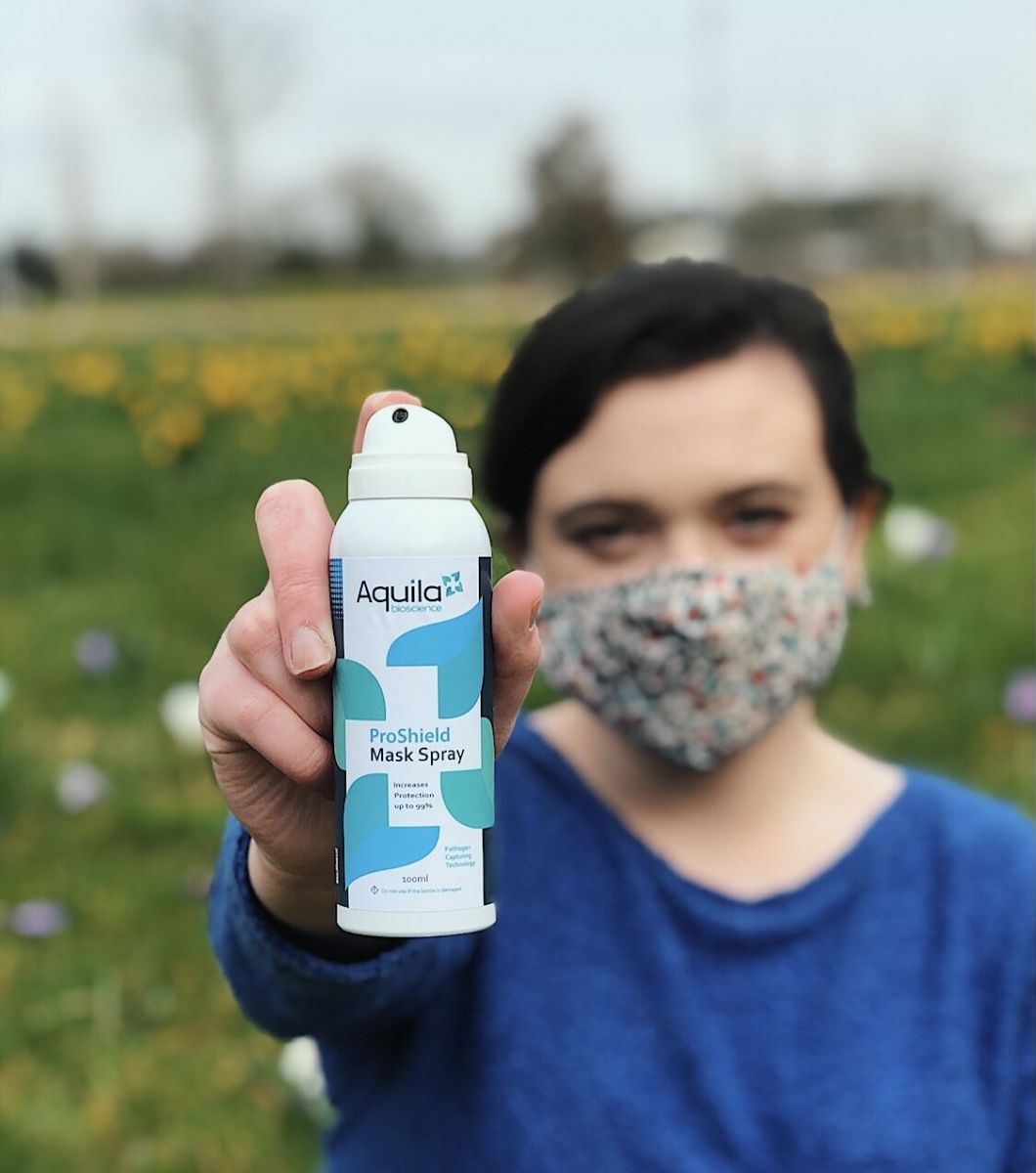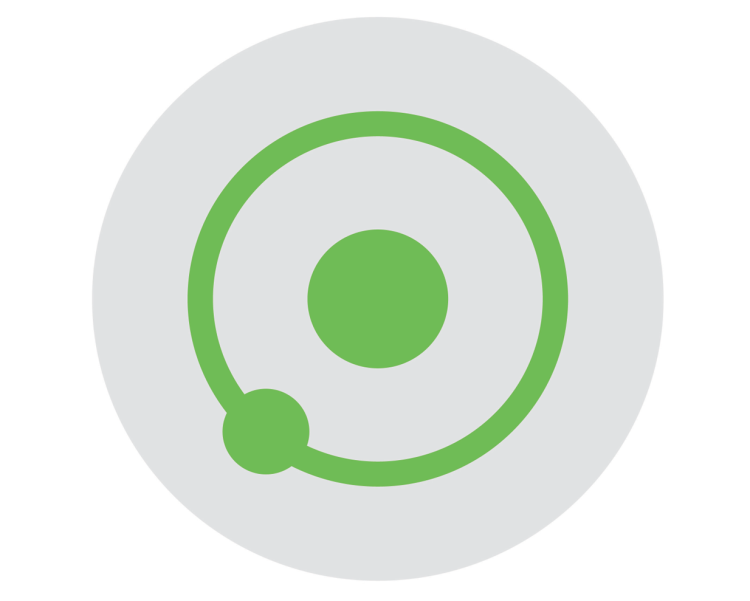27 July 2021
Working in conjunction with the Defence Forces Ireland and the Czech University of Defence, an Irish medical technology company has developed an innovative Pathogen Capturing Technology.
Aquila Bioscience, founded by Lokesh Joshi, Professor of Glycoscience at the National University of Ireland Galway, is aiming to disrupt the global antibacterial and disinfectant industry with this Pathogen Capturing Technology (PCT).
The product was originally developed to keep first responders safe from biological warfare, but more recently has been adapted to help individuals battling the pandemic, without relying on traditional chemical disinfectants.
“The materials we use today to disinfect and decontaminate are 100 years old, the same as they were using during WWII. In the 21st century, we are continuing to rely on harmful chemicals – such as ammonia, chlorine or alcohol – to try and keep us safe.”
–Lokesh Joshi
Professor of Glycoscience, National University of Ireland Galway
Decontaminating The Skin Safely
Joshi set up Aquila Bioscience eight years ago when Ireland’s Defence Forces tasked him with developing a product that protects the military by countering biological agents while allowing forensic analysis.
At the time, military assets globally had no safe way to decontaminate their skin, especially around the face, eyes, nose and mouth in the event of exposure to hazardous life-threatening biothreat agents such as anthrax or ricin. Professor Joshi, a Biochemist with expertise in proteins and sugars, set to work devising an innovative solution capable of safely disarming some of the world’s most dangerous substances.
A Challenge to the Toxic Chemical Response
Nature protects us every day from microbes that we breathe in all day long and in foods that we eat. We ingest microbes all the time, but don’t get sick, because nature produces a mechanism against them, similar to the way a mother’s milk protects an infant from gut pathogens,” he explains.
"Breastmilk, saliva, tears are all just some of the ways nature protects us on a daily basis. Yet, despite advances in science having given us a clearer understanding of how such substances work, toxic chemicals remain our reflexive response when dealing with contaminants.
“The materials we use today to disinfect and decontaminate are 100 years old, the same as they were using during WWII. In the 21st century, we are continuing to rely on harmful chemicals – such as ammonia, chlorine or alcohol – to try and keep us safe,” he says.
"These ingredients work by destroying cells, which is why they can lead to dry skin, dermatitis or asthma, as well as much more serious conditions.
“If you used them on a houseplant, it wouldn’t last a week."
Pathogen Capturing Technology
The regular and widespread use of chemical disinfectants have been a central feature of the world's response to COVID-19, in the form of hand sanitiser and treatment sprays. Aquila Bioscience seeks to challenge this reliance.
Joshi and his team developed innovative Pathogen Capturing Technology, which, when applied to a mainly biodegradable cotton wipe, safely removes microbes using nano-scale hooks that simply lift them off our skin, before securely trapping them.
“The Achilles’ heel of any bioagent or pathogen is that it has to attach to something. That’s why our technology is so simple, yet so disruptive,” he explains.
Called Anti Bioagent Decontamination (ABD) Device, it represents a step-change in the way the world approaches biohazards, allowing for the use of mechanical action rather than toxic chemicals to sanitise skin. Aquila Bioscience’s patented solution uses millions of decoys that bind to pathogens, disabling them. COVID-19 saw the company pivot to provide a consumer version, supported by funding from the prestigious European Innovation Council.
Independent testing from NeoVirTech, a French Laboratory, shows it can capture and remove up to 99.99 per cent of SARS-CoV-2 from human skin.

Picture: a photograph of a person wearing a mask and holding a bottle of ProShield Mask Spray
ProShield Mask Spray
The company has now developed a second pilot product based on its signature technology.
The ProShield Mask Spray is designed to be sprayed by the user onto a reusable cloth mask daily. Once there, it captures and neutralises harmful pathogens on the outside of the mask, until it is washed, and the pathogens are then destroyed.
Currently billions of used disposable masks are clogging up not just landfill but rivers and roadsides worldwide. “This isn’t just a health crisis, it’s a climate crisis we are creating for generations to come,” says Joshi.
Picture: a graphic showing a pathogen spore
Article written by Ella Tansley | Published 27 July 2021
Share
Related Articles
ALFA Eco Tech Launches “Mechanical Solution” to Virus Transmission
CoviX101 is a non-toxic product that claims to use molecular nano spikes to kill microorganisms.
Developed by ALFA Eco Tech, when CoviX101 is applied to a surface it...
Read Full Article
SafeGroup Launches Back to Business COVID Disinfection And Testing Service
Emergency soft FM specialist SafeGroup has launched a comprehensive COVID-19 disinfection and testing service to support businesses as they seek to return to work safely...
Read Full Article
Memorial to Transport Workers who Lost Their Lives to COVID-19 Unveiled
A new memorial in Aldgate that commemorates transport workers who passed away due to COVID-19 has been officially opened by the Mayor of London Sadiq...
Read Full Article
MPs’ COVID-19 Report Calls on Minimum Standards for Hygiene Infrastructure
MPs are recommending a series of measures to prepare the UK for future public health emergencies, resulting from an inquiry into the role of cleaning during the COVID-19...
Read Full Article
Sodexo’s Head of Health & Safety Named COVID Workplace Champion
April Harvey from Sodexo has been recognised for her role as health, safety and risk lead in the mobilisation of the first COVID quarantine facility and COVID-19 test...
Read Full Article
Improving Indoor Air Quality This Winter
During the pandemic, COVID has raised the profile of the quality of the air we breathe in our buildings – how do we maintain this priority throughout the winter...
Read Full Article
University Researches AI Surveillance for Social Distancing Monitoring
Researchers at Griffith University, Australia, have developed an AI video surveillance system to detect social distancing breaches in an airport without compromising...
Read Full Article
BESA Highlights Shortcomings of Government IAQ Report
A report commissioned by the government’s chief scientific adviser Sir Patrick Vallance has highlighted the crucial role played by building ventilation in...
Read Full Article
Freedom Day – How Do You Feel About Returning to The Office?
For some, Freedom Day marks a much-awaited return to some of our pre-pandemic habits, including working at the office instead of at home. But is everyone keen to come...
Read Full Article
UK Workers Unsure on Returning to Office Without Vaccine
Around half of UK office workers feel confident about returning to work without a fully vaccinated workplace.
Research shows that 80 per cent of UK office...
Read Full Article

.gif)



.gif)
.gif)






.png)

